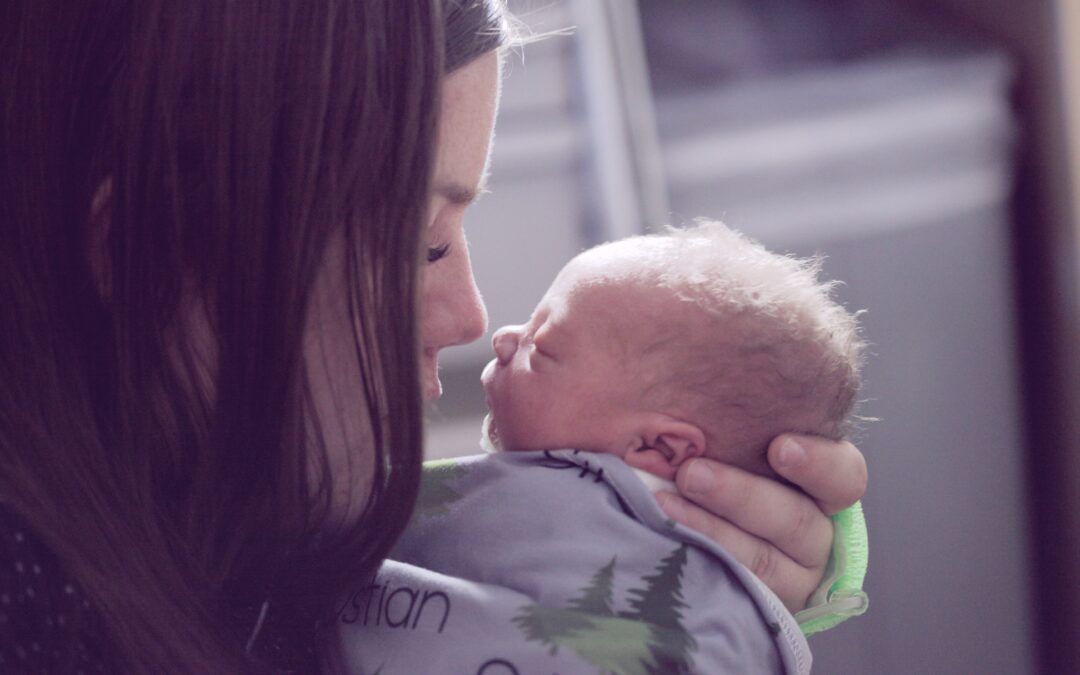Throughout pregnancy, so many new mothers are bombarded with media images and messages from family and friends about the magical journey they are about to embark upon with their beautiful new bundle of joy. While so much about pregnancy, childbirth, and new motherhood is most certainly magical and beautiful, a lot of new mothers are ill-prepared for the drastic changes coming for their bodies, their relationships, their careers, and even their sense of identities.
With the pressure to fulfill society’s expectations of the never happier, joy-filled caricature of new motherhood, too many women face the various challenges to their well-being during the post-partum period in silence and isolation.
No matter how excited and elated a new mom might be to finally meet her tiny newborn, the days, weeks, and oftentimes months following childbirth can also be spent coping with roller-coaster hormones, scant sleep, and limited time for self-care. It is no wonder that a number of serious mental health concerns can impact new mothers. These include postpartum depression, postpartum anxiety, postpartum Obsessive-Compulsive Disorder, and even childbirth-related Posttraumatic Stress Disorder.
Although not all women experience these symptoms at diagnostically significant levels, many do encounter marked upticks in feelings of sadness, fear, and worry.
Although a lot of resources exist preparing new parents for their newborn’s homecoming, most report an immense adjustment period adapting to the realities of juggling pre-existing career and daily housekeeping responsibilities with the enormous task of caring for the new mini boss of the household. Among the factors that create difficulties for women, in particular, is the pressure to “do it all”—maintain their professional lives, their relationship with their partners, and their households all while nurturing their newborns at all hours of the day and night. Inevitably, many new moms struggle to live up to the impossible pressures they encounter and oftentimes have internalized about what it means to be successful as a mother. On top of that, when women experience a reality that departs from the portrayal of new motherhood as a time of pure bliss, they often feel intense emotions of guilt and shame.
Additionally, many new mothers confront problems in their relationships with their partners.
These can stem from a number of issues, including miscommunication on the division of childcare responsibilities, inconsistent ideas about gender roles and respective contributions to the home, extreme sleep deprivation, and limited time to focus on the relationship and spend quality time together.
How can new mothers manage the stressors of caring for their newborns?
An important way new mothers can begin to cope with the drastic changes going on inside them and in their lives is by allowing themselves to feel it all. Despite messages that might barrage new moms, there is no “right way” to be feeling. It is okay—if not expected—to feel overwhelmed, worried, sad, afraid, and a multitude of other uncomfortable emotions. Holding realistic expectations and self-compassion are critical during this time of immense life transition.
New mothers should feel empowered to share their struggles with their partners, families, and friends, and they should seek support in whatever ways make sense for them.
If it means letting grandparents or other relatives watch the baby while mom engages in much needed self-care or both parents spend impossible-to-find quality time together, then let those support people help. New parents should also make a point to check-in with each other about their relationship so they can address problems head-on and work together to meet each other’s needs—especially in the context of raising a newborn.
A multitude of more structured support networks also exist for new mothers, including new mom support groups, parenting groups, and breastfeeding groups.
For women who think they might be struggling with more serious postpartum issues, such as depression and anxiety, they should reach out to their obstetrician, general practitioner, psychiatrist, and/or therapist to discuss possible treatment options. Most importantly, all women should know that in the very real struggle to adjust to life with a new baby, they are not alone.
Kristen Neal is a Licensed Professional Counselor and Clinical Director at Greenway Therapy . Learn more about her on her BIO page.





